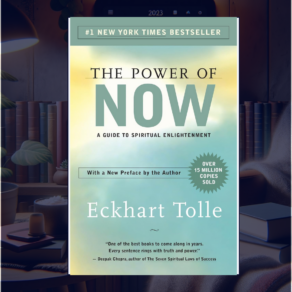A Promised Land, the first volume of Barack Obama’s presidential memoirs, offers an introspective and candid look at his political career, highlighting the idealism, determination, and resilience that carried him into the White House.
The journey begins in his early years, tracing back to his time as a community organizer in Chicago, a period that sculpted his approach to politics as a mechanism for change. It’s interesting to see how Obama’s worldview evolved, born from his experiences in this bustling city teeming with diverse perspectives.
Obama chronicles his early political career with a measured and reflective tone, from his time in the Illinois State Senate to his quick, often surprising leap to the U.S. Senate. He openly discusses the challenges he faced, the lessons he learned, and the political machinery he observed and grappled with.
The heart of the book, however, is his presidential campaign and his first term as President of the United States. His intimate account of the 2008 campaign is insightful, and readers get to revisit this historical period with the added perspective of Obama’s personal thoughts and doubts.
The book details his battle for the Democratic nomination against Hillary Clinton, the trials of the general election against John McCain, and finally, his victorious moment of becoming the first African American president.
[Related: Summary of Phil Knight’s Book Shoe Dog]
Once in the White House, Obama discusses the hurdles, the victories, and the complexities of his position. From the Affordable Care Act to the 2008 economic crisis, the climate change policy, the assassination of Osama bin Laden, and more, he lays bare the enormity of his responsibility and the intricate dance of compromise and conviction needed to address these issues.
The memoir is also marked by his reflections on the inescapable elements of race and how it played a role throughout his presidency. He grapples with the tension of his monumental role as the first Black president and the persistent and systemic racial tensions in America.
Beyond politics, Obama shares about his life inside the White House, giving us glimpses of his family life. He speaks fondly about his wife, Michelle, and his daughters, Malia and Sasha, and the struggles of maintaining some semblance of normalcy amid the all-consuming nature of his position.
“A Promised Land” ends in May 2011, with the raid on Osama bin Laden’s compound, a moment of victory that nonetheless underscores the continuous cycle of challenges that his presidency faced. The reader is left awaiting the continuation of his story in the second volume, to journey deeper into his presidency and its enduring effects on the American landscape.
Overall, “A Promised Land” isn’t just a historical record. It’s a human story, a testament to the power of resilience, and a deeply personal account of Obama’s transformation from a young idealist to a seasoned world leader. As much as it is Obama’s journey, it’s also the journey of a nation seeking progress and grappling with the realities of power, compromise, and the persistent hope of a more perfect union.
A Promised Land Book Club Questions
Here are some interesting book club questions to facilitate conversation about A Promised Land:
- How does Barack Obama’s background as a community organizer in Chicago shape his approach to politics? Can you identify any particular instances in the book where this influence is evident?
- Obama discusses the complexities and difficulties of striking a balance between idealism and pragmatism in politics. Can you find examples of this struggle? How do you think he handled these situations?
- How does Obama grapple with issues of race in his memoir? As the first African American President, what unique pressures and expectations did he face, and how did he navigate them?
- Obama discusses numerous political challenges during his first term in the book, such as healthcare reform, the economic crisis, and climate change. Which of these did you find most impactful and why?
- Family plays a significant role in Obama’s narrative. How does he manage the tensions between his political role and his family life?
- Reflect on the narrative tone throughout the memoir. How does Obama’s writing style influence your perception of his presidency and the events he describes?
- The book ends with the raid on Osama bin Laden’s compound. How did this event encapsulate the various themes Obama discusses throughout the memoir?
- How has reading this book altered or reinforced your view of Barack Obama as a president, a leader, and a person?
- Obama shares many insights into the functioning of American politics and the presidency. What was the most surprising revelation to you?
- Looking ahead to the second volume of his memoirs, what aspects of his later presidency are you most interested in learning about, and why?
I hope you find A Promised Land summary helpful!







